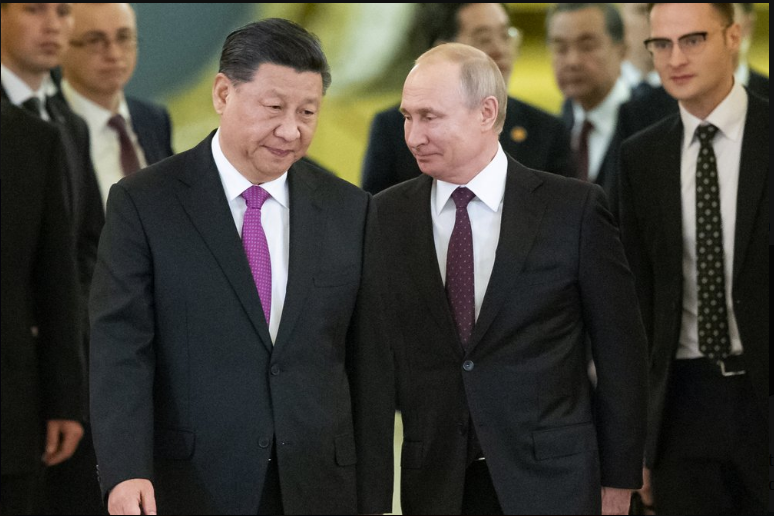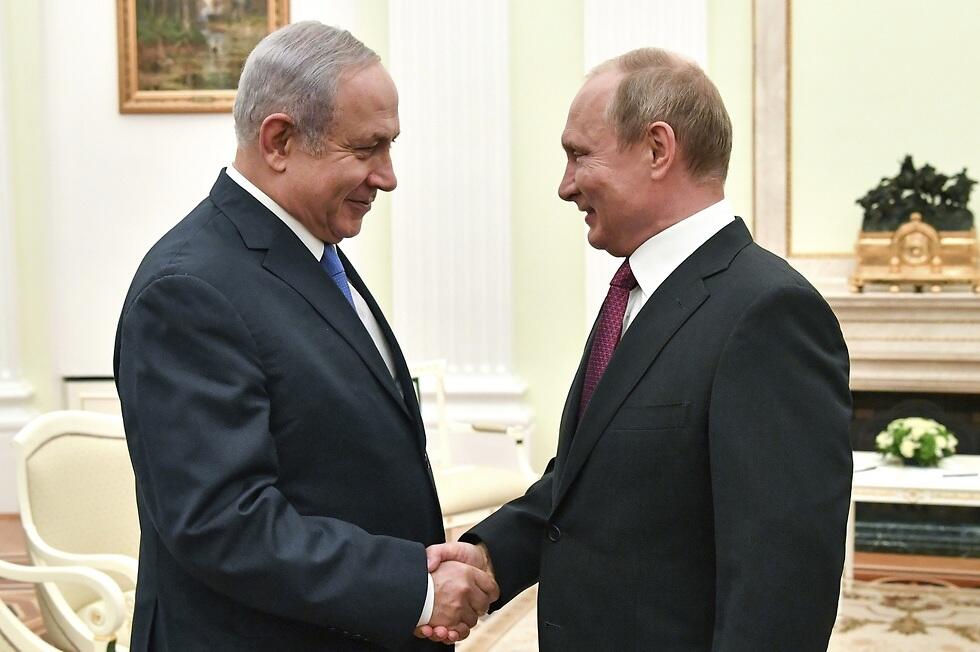Getting your Trinity Audio player ready...
A former member of the Shin Bet's cyber division sent an urgent call to the Knesset Foreign Affairs and Defense Committee chair, Yuli Edelstein to address the danger to Israel's cyber security, emanating from China.
Read more:
In the letter that was seen by Ynet's sister publication, Calcalist, Dr. Harel Menashri, co-founder of the cyber system at the Shin Bet and currently serving as the head of the cyber field and a senior lecturer at HIIT said that China's extensive investments in strategic assets in Israel, should raise an alarm because at any given day, China could have the capability to disrupt critical infrastructure operations in Israel.
The focus of concern primarily revolves around the management and operation of the Haifa Port, which is currently under the control of a Chinese company. However, the risk does not end there. In his view, these concerns are not receiving adequate attention, despite China's increasingly radicalized stance toward Israel.
"The disaster we witnessed on October 7 serves as a reminder to heed the warnings from the defense establishment, and I would like to raise awareness about a similar situation," Menashri wrote. He said that components manufactured in China, which are integrated into the police's "Hawkeye" system, have been blacklisted in the US.
In his letter to the parliamentary committee Menashri emphasizes the need for Israel to mitigate risks and make well-considered decisions regarding its engagement with China. While acknowledging China's significance as an important country, he emphasizes the importance of restricting certain imports and preventing information leakage.
Menashri strengthened his argument by referencing past American opposition to China's involvement in the Israeli port, which included a warning that the Sixth Fleet would no longer dock there.
Apart from China's notable presence in strategic infrastructures, such as the predominantly Chinese-built light rail, Israel maintains highly developed trade relations with China. In 2022, the trade volume between the two countries reached $17.6 billion, approaching the trade volume with the United States, which stood at $22 billion.
According to CBS data, relations with China have been expanding rapidly, with a 17% increase in 2022, following a significant jump of 27% in 2021. It is important to note that these figures do not include trade in diamonds. The major surge is observed in the import of Chinese goods to Israel, which reached $13 billion, while exports grew at a slower rate, totaling $4.5 billion.
This increase is primarily driven by the popularity of retail platforms such as Ali Express and SHEIN, rather than strategic assets. The rising demand for Chinese vehicles has also impacted the data. Menashri expressed concerns about the defense establishment's use of such vehicles and believes this issue had not received sufficient attention.
Dependence on oil from the Gulf
Since the outbreak of the war, concerns about the deepening Chinese presence in Israel have significantly intensified. The direct involvement of Iran in attacks on Israel, both from the north and through the Houthis, has heightened these concerns even further. While the primary tension associated with China used to revolve around the trade war with the US, the current situation has led to questions about China's position within the emerging alliances, as the composition of the "axis of evil" becomes more defined and pronounced.
At present, it's hard to definitively say which side China is on, and whether it even views this geopolitical mess as a "good vs evil" conflict to begin with.
In recent years, China has not only witnessed an increase in trade with Israel but has also developed a significant interest in the Middle East, particularly due to its reliance on oil. While China was able to meet its own oil demands in the 1990s, it has now emerged as the largest importer of oil from Saudi Arabia and Iran.
Approximately one-third of China's oil consumption is sourced from the Persian Gulf, leading to a shift in its strategic interests towards the region. The "New York Times" highlighted this shift shortly after the October 7 attack. China has become a key trading partner for Iran, effectively bypassing the economic sanctions imposed on the country by the West. In September of the previous year, China accounted for 87% of Iran's oil exports, solidifying the Chinese as the Islamic Republic's favorite client.
Shifting alliances
Prime Minister Benjamin Netanyahu had a vision - to lessen Israel's reliance on the United States and forge new alliances with Russia and China. He believed that by cultivating these relationships, he could reduce Israel's vulnerability and increase its diplomatic options. One of his tactics was to bolster Hamas, thinking that weakening the Palestinian Authority would give Israel an advantage.
However, the results of this strategy took an unexpected turn. Russia, once seen as a potential ally, revealed its true face after the Hamas attack. President Vladimir Putin not only refrained from condemning Hamas but also went as far as hosting a delegation from the terrorist organization in Moscow. The revelation was a blow to Netanyahu's hopes of securing Russian support. Meanwhile, China, though more discreet and nuanced in its approach, has shown a growing pro-Palestinian stance.
This can be seen through statements made by members of the Communist Party, who have expressed support for the right of return, as well as their joint efforts with Russia at the United Nations to block condemnation of the Hamas attack in the Security Council. These developments have brought to light the challenges and limitations of Netanyahu's diplomatic strategy, highlighting the complexities of forging new alliances and reducing Israel's dependence on the United States.
There are clear facts that we cannot ignore, but there are also grey areas where Chinese activities have an impact. These areas include the analysis of the algorithms used by TikTok, a social network that many people tend to forget is backed by China. There have been attempts to determine the extent to which these algorithms promote antisemitic and anti-Israel content.
In fact, an investigation conducted by the "New York Times" revealed that China, Russia, and Iran are actively engaging in a social media campaign to support Hamas. Another recent development involves complaints from Israeli industrialists regarding delays in receiving various electronic components, including those used by the defense industries. However, Israeli officials residing in China argue these delays are not intentional, but rather a result of disruptions in cash flows and supply chains that China itself is currently facing.
Controlling content on TikTok
According to Carice Witte, an expert on China and chairman of the SIGNAL Institute for the Study of Israel-China Relations, China's recent behavior cannot be ignored. The changing nature of relations with China is evident in its tolerance of antisemitism on TikTok and its failure to condemn Hamas.
4 View gallery


Antisemitic material pushed on Chinese social network TikTok
(Photo: Sergei Elagin / Shutterstock.com)
However, Witte emphasizes that China "should not be seen as a black-and-white choice of being either with them or against them. Instead, what is necessary is for every government ministry to receive training on China or have access to experts who possess the knowledge and skills to effectively engage with the country. China is fundamentally opportunistic, identifying and capitalizing on various opportunities, and this understanding should guide Israel's approach."
According to Witte, "China does not operate based on the concept of 'friends,' and it would be naive to assume that our previous good relations with them still hold true. China's actions are driven by their own interests, and when they perceive Israel as a source of innovation, they will engage with us. However, in recent years, the areas where China finds value in Israel have diminished." Witte highlights that China's technological interest in Israel has waned, indicating a shift in their priorities.
As Witte points out, "China's primary concern lies in its influence within the UN and the power it holds there. Unlike Russia, China's intentions do not involve openly exerting control or influence on a global scale; Rather, they focus on advancing their own economic interests. This policy should raise concerns for Israel, as there is a risk that China may exploit or harm us in order to further their own agenda.
For instance, China sells weapons exclusively to certain countries, which could potentially include Iran and Turkey. While China may not be concerned about whether these weapons reach Gaza, it is crucial for Israel to demand transparency and ensure that they track the destination of military products."




